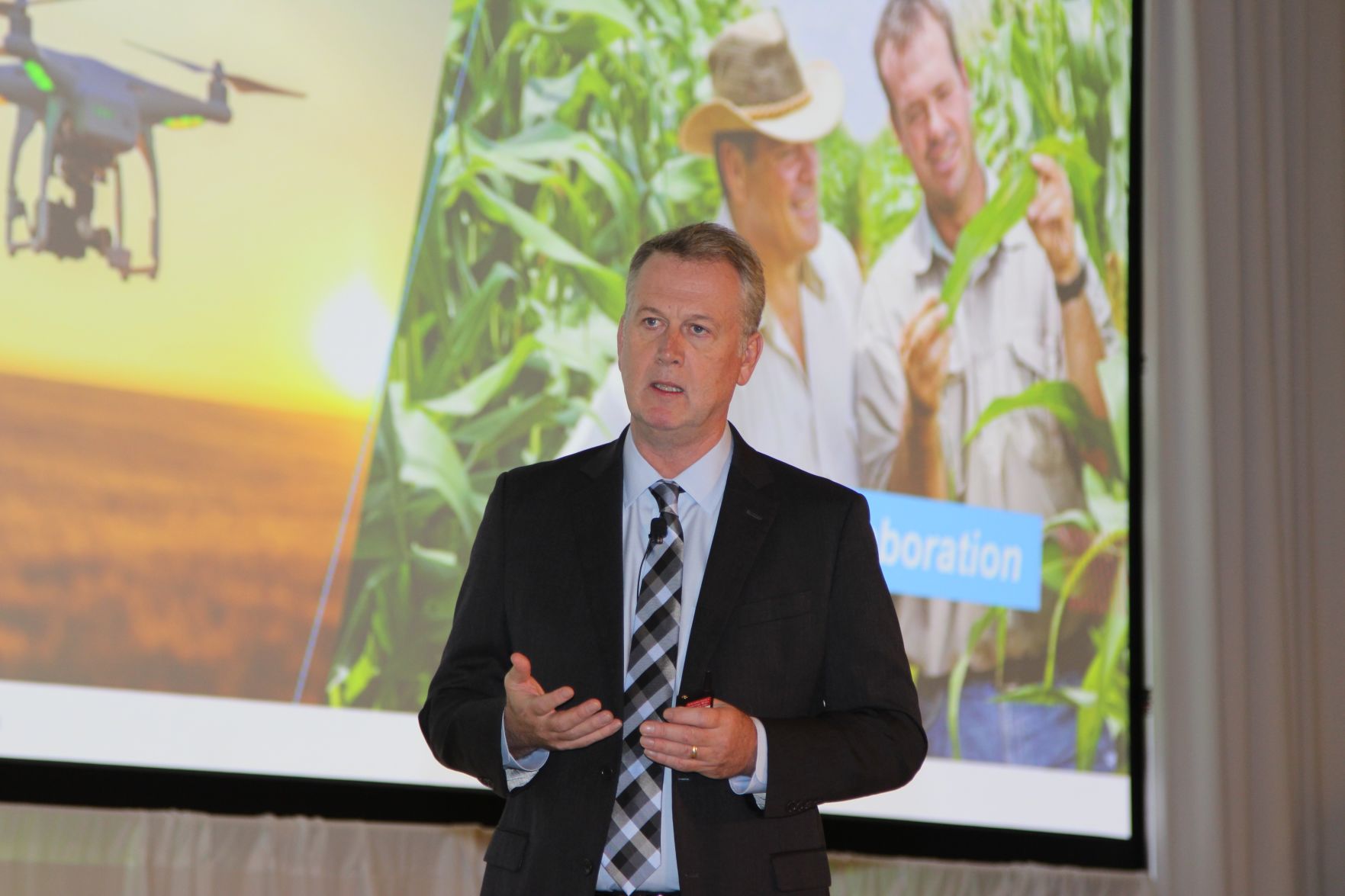For 13 years Bayer has brought together agricultural leaders and communicators together in The Bayer AgVocacy Forum to discuss the hot topics of the day just prior to the Commodity Classic. The Forum kicked off Sunday, Feb. 25, in Anaheim, California.
In those 13 years the work of producing food, feed and fiber has changed at a breath-taking speed. Advancements in cloud computing, cheaper and faster processors and an explosion of innovation that spans across industries is helping farmers improve their efficiencies on the farm. And it’s helping improve the way of life for consumers at home and around the world.
But communicating the science of agriculture to a population that is not well-versed in science is growing more difficult every day.
Adrian Percy, global head of research and development, Crop Science, a division of Bayer, emphasized that point.
“We need to work to restore the public trust,” he explained. “All of this innovation is for nothing if we don’t restore our trust with the public. And that ‘trust gap’ has emerged over the last few years.” A survey of more than 10,000 people in 10 different countries showed that consumers understand that modern agriculture is necessary, that there is a need to feed a growing population, but that the tools that are used have a poor public perception.
“With less than 2 percent of the population working on the farm, it takes a grassroots effort today to communicate,” added Rob Schrick, strategic business lead, Broad Acre Crops, Crop Science, a division of Bayer. “But, more than 20 million people in the U.S. have jobs associated with agriculture.” Those jobs rely on the innovations and efficiencies science, research and development bring to ag production, he explained.
Percy said it’s important that everyone in the industry take an active role in interacting with consumers and regulators. And while it’s uncomfortable for some scientists, they themselves are asking for more help in communicating with consumers.
“Traditionally, scientists felt uncomfortable talking about the science,” Percy said. “But now they’re asking for help. Because they are passionate about what they can do with science. They are performing a service to society and mankind and they would like to have that voice.”
Of course part of that conversation is the role corporations play in innovations and with the merger of Bayer and Monsanto still underway that provides questions in the public’s mind. Percy acknowledged the issue and said that the merger is making tremendous progress and is in the process of obtaining regulatory approvals in many jurisdictions around the world.
“This deal has a lot of scrutiny, as it should, with the Department of Justice in the United States and the European Commission,” Percy said. “It’s an exciting time for us, particularly in the innovation spectrum. The capabilities we each have are very complementary.” The opportunity to bring scientists together for collaboration could drive agricultural innovation forward for many years, he said.
Jennifer M. Latzke can be reached at 620-227-1807 or [email protected].




